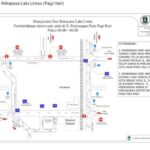The International Civil Aviation Organization (ICAO) holds an Assembly Session every three years. This forum serves as an important venue for multilateral meetings and discussions to formulate global civil aviation regulations and standards.
The decisions made at the Assembly Session are adhered to by member states to ensure the safe, orderly, and sustainable growth of international civil aviation.
The 42nd ICAO Assembly Session is scheduled to take place from September 23 to October 3, 2025, at the ICAO headquarters in Montreal, Canada, promoting a long-term strategic plan titled «Safe Skies, Sustainable Future.»
ICAO emphasizes its commitment to cooperate with all stakeholders, including member states, non-members, non-governmental organizations (NGOs), and the private sector, to build a more resilient, inclusive, and sustainable international aviation system.
In line with this goal, Taiwan calls for ICAO to allow full participation of Taiwan in the Assembly Session, technical meetings, and other mechanisms to ensure regional aviation safety and development needs, while also realizing the vision of safe skies leading to a sustainable future.
The Importance of the Taipei FIR
The Taipei Flight Information Region (FIR) encompasses one of the busiest air routes in East Asia and is an integral part of the more than 300 FIRs in the ICAO network. In this context, the Taiwan Civil Aeronautics Administration (CAA) is the sole agency responsible for overseeing the Taipei FIR.
The CAA provides comprehensive flight information services and manages air routes to ensure the safety and efficiency of all flights entering, leaving, or transiting through this region.
From a risk management and safety perspective, ICAO should grant the CAA the opportunity to participate on an equal footing with other FIR management authorities. This is crucial for the Taipei FIR to communicate directly with other FIRs and with ICAO, enabling the swift and accurate flow of information.
However, in recent years, China has frequently declared temporary danger zones, implemented airspace reservations, and established military exercise areas within the Taipei FIR, despite having no jurisdiction over the region.
These actions are taken without meeting ICAO’s requirement for at least seven days’ prior notification, causing serious disruptions to flight safety both within the Taipei FIR and in surrounding FIRs.
Taiwan’s Commitment to Global Aviation
The international aviation industry currently faces various challenges stemming from both natural factors and human actions, such as climate change, energy crises, and global geopolitical tensions.
Taiwan, which manages heavy traffic in the Taipei FIR, consistently strives to be a responsible stakeholder in the international aviation community.
The CAA has launched a State Safety Program, adopted ICAO standards, and cooperated with industry stakeholders to build a safety oversight system. As a result, Taiwan has achieved an excellent safety record.
Specifically, during the period 2020–2024, the accident rate for both turbofan and turboprop aircraft reached zero incidents per million flights.
Taiwan’s aviation industry has also gained global recognition. For example, EVA Air was named one of the world’s safest full-service airlines by AirlineRatings.com and ranked as the seventh safest airline in 2025.
Furthermore, to support sustainable development, the CAA has incorporated the Carbon Offsetting and Reduction Scheme for International Aviation (CORSIA) into national law and launched a pilot program for sustainable aviation fuel in April 2025.
This step confirms Taiwan’s determination to make tangible contributions to the transformation towards net-zero emission targets. However, despite these efforts, Taiwan’s access to critical information remains limited because it is not allowed to participate in technical meetings or training organized by ICAO.
In this regard, ICAO should uphold the principle of «No One Left Behind» by opening the door for Taiwan’s equal participation.
A Crucial Moment to Embrace Taiwan
Aviation safety knows no national borders. For decades, Taiwan, through the CAA, has consistently upheld the highest standards of service and safety in the Taipei FIR, while adhering to ICAO standards and recommendations.
As part of the international aviation community, Taiwan shares the same responsibility for maintaining regional and global flight safety.
Taiwan’s participation in ICAO would enable closer collaboration with other countries, allowing it to contribute positively to the development of global aviation and the well-being of humanity.
With






